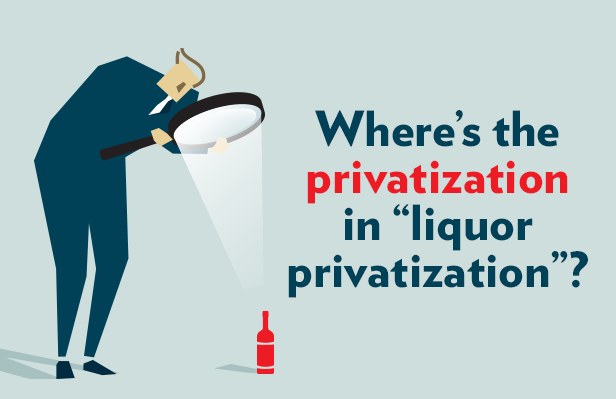Media

Senate’s Watered-Down Wine Plan: A Missed Opportunity
Last night, the Senate Law and Justice Committee advanced legislation making modest changes to Pennsylvania's irrational alcohol laws.
The good:
- Limited wine expansion. Establishments with a restaurant or “R” license would be able to sell up to four bottles of wine. This includes grocery stores that have a restaurant license and a separate eating area—the few grocery stores that currently sell beer.
- More convenience within the state store system and more consumer-friendly alcohol laws.
- No restrictions on state store hours of operation;
- Extended drinking hours on Groundhog Day;
- Legalized the direct shipment of wine;
- Increased flexibility for casinos when selling alcohol;
- Resale of inactive liquor licenses allowed.
The bad:
- No wholesale privatization. The state would keep a complete monopoly over the wholesale side of wine and spirits sales and distribution. Instead, a commission would study the state's system of alcohol distribution.
- No liquor privatization. State stores would remain the only place to buy spirits to go.
- No wine or spirits in beer distributors, no stand-alone stores, and no wine in most grocery stores. This differs from other proposals, and even from what was reported as the “framework deal.”
- Variable pricing. Allowing the state stores to arbitrarily increase (or decrease) prices on their best-selling products, costing consumers even more.
While these reforms would bring some convenience to the state's Capone-era system, the fact the government would remain the only wholesaler and main retailer of wine and liquor is troubling.
A study isn’t necessary to demonstrate what we already know: The state’s booze monopoly is incapable of serving Pennsylvanians. The government-run system has led to product shortages, inconvenience for entrepreneurs, and outright neglect of their property.
Inconvenience and mismanagement aren’t the only PLCB-created problems. Protecting the agency’s wholesale monopoly squashes any chance of a truly competitive system, whereby wholesalers are free to offer the best products and the lowest costs to retailers. The Senate plan prevents this dynamic, keeping competition from improving the market for wine and liquor.
If state government continues to control the distribution and sale of wine and liquor in the commonwealth, consumers and entrepreneurs will remain frustrated by a corrupt system that has outlived its usefulness by about eight decades.
Moreover, the Distilled Spirits Council of the United States (DISCUS) has expressed valid concerns about the Senate's watered-down wine plan. They fear making changes to how wine is sold and leaving liquor alone could lead to a loss of $92 million in net income for the Liquor Control Board.
Complete privatization is the only viable option.